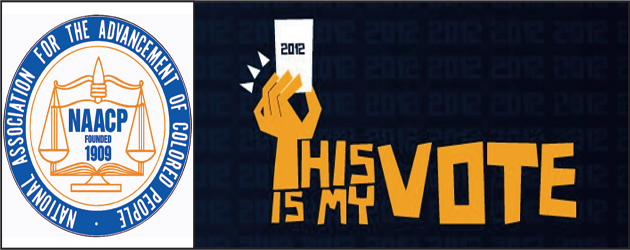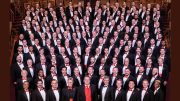 By: Lisa Keen/Keen News Service–
By: Lisa Keen/Keen News Service–
Saying that the NAACP has “always stood against laws that demean, dehumanize, and discriminate against people,” NAACP Board Chairman Roslyn Brock formally announced Monday (May 21) the board’s vote in favor of a resolution supporting marriage equality.
Joining Brock at a press conference at the group’s headquarters in Baltimore, NAACP President Ben Jealous noted that this is the first time the organization has taken a position on same-sex marriage generally, and not in the context of opposing a specific law, such as Proposition 8.
LGBT groups were understandably excited to hear the news because the announcement can be considered a major advancement in the general population’s support for marriage equality. Anti-gay activists have tried hard for years to drive a wedge between the black and gay movements for civil rights, and many polls have shown African-Americans generally have shown less support for allowing gay couples to marry.
“We could not be more pleased with the NAACP’s history-making vote today,” said Human Rights Campaign President Joe Solmonese. “It’s time the shameful myth that the African-American community is somehow out of lockstep with the rest of the country on marriage equality is retired, once and for all.”
HRC recently released copies of internal memos it discovered from court documents, illustrating that the anti-gay National Organization for Marriage was deliberately trying to organize African American opposition to same-sex marriage.
Rea Carey, executive director of the National Gay and Lesbian Task Force, called the NAACP board vote “a truly historic moment,” adding that NGLTF “couldn’t be more thrilled.”
Carey said her group is not surprised by the vote. NAACP National President Ben Jealous had delivered a keynote address to NGLTF’s national conference, reminding attendees that famed civil rights activist Bayard Rustin, who was gay, helped planned the historic 1963 civil rights march on Washington.
In his keynote, Jealous told the audience at NGLTF’s annual Creating Change conference, held last in January in Baltimore, of a close friend he had since the age of four. The friend has been like a brother to him. Jealous shared how he and his friend— the only other black child his age in his Carmel, California, neighborhood— stuck together when being discriminated against because they were black. And Jealous also stood together with his friend when his friend was being bullied because he was gay.
The NAACP announcement comes just 10 days after President Obama made headlines by affirming that he believes same-sex couples should be allowed to marry—a statement he has been reluctant to make since running for the White House.
The board of the 103-year-old civil rights group passed a resolution stating: “The NAACP Constitution affirmatively states our objective to ensure the ‘political, educational, social and economic equality’ of all people. Therefore, the NAACP has opposed and will continue to oppose any national, state, local policy or legislative initiative that seeks to codify discrimination or hatred into the law or to remove the Constitutional rights of LGBT citizens. We support marriage equality consistent with equal protection under the law provided under the Fourteenth Amendment of the United States Constitution. Further, we strongly affirm the religious freedoms of all people as protected by the First Amendment.”
In releasing the statement, NAACP board Chair Roslyn Brock said that the NAACP’s mission “has always been to ensure the political, social and economic equality of all people.” And she promised the NAACP would “oppose efforts to codify discrimination into law.”
The New York Times reported that its sources indicated only two board members failed to support the resolution. The board includes 69 people.
The organization’s press release about the board’s vote explained that its support for marriage equality was “deeply rooted” in the constitutional guarantee of equal protection of the law. At Monday’s press conference, Jealous said the NAACP would “firmly oppose all efforts to restrict marriage equality,” including attempts to amend budgetary bills in Congress with language intended to exclude gay couples.
Asked whether he was concerned there might be a backlash against the NAACP by black churches, Jealous gave an emphatic response. He said some clergy might feel differently than the board, but that the NAACP does this work “because of our faith, not despite it.”
“This will not,” he said, “be used as a wedge issue in our own community.”
© 2012 Keen News Service. All rights reserved.







